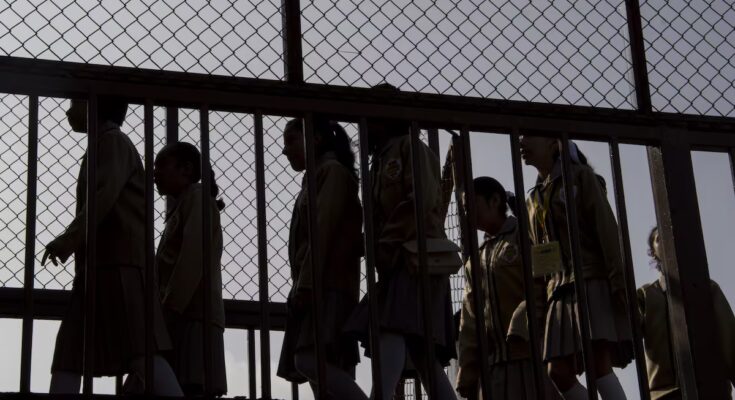At least 400 students from the Number 1 Technical Secondary School, in the capital Zacatecas, have had their photos converted into pornographic material with the help of artificial intelligence (AI). The parents of the victims asked for the resignation of the director and the social welfare manager of that school for their alleged omission after receiving a serious complaint from the students. The Prosecutor’s Office of that State has opened an investigation into the crime against sexual intimacy. According to the complaints of those affected, one of their classmates, 14 years old, was identified as the alleged intellectual author, who, aided by two other classmates, was responsible for altering and disseminating the content through social networks.
According to the victims’ complaint, the young defendant would have created a catalog, hosted in the cloud, of altered images, where the students appear completely naked and in explicit sexual poses. Even some photographs, they explain, were animated to create fragments of pornographic videos.
These manipulated photos were published on a page of the social network Instagram and hosted on a Google server. The material was preserved with the girls’ names and their rank. Members of the investigative police of the Zacatecas Prosecutor’s Office interrogated one of the young people, from whom a cell phone with indicated pornographic content was seized.
According to interviews conducted by the victims’ families in local media and networks, they explained that the attacker obtained images of the students’ faces by standing outside the bathrooms holding his cell phone. They point out that the defendant stood in the doorway and quickly photographed them as they left the bathroom. With the help of AI applications, this student managed to create hundreds of photographs. Initially the altered material was spread through WhatsApp groups and subsequently reached publicly accessible profiles on social networks.
The parents of the victims asked this Monday, at the doors of the school, for the direct intervention of the Secretary of Education of Zacatecas, Gabriela Pinedo, who sent her representatives to channel the complaints. However, this angered the families of those affected more, which is why they considered it an omission and a lack of interest on the part of the authorities in the case. “We don’t know how far these images have reached. That’s what (the authorities) don’t understand,” said the mother of one of the victims.
Violence with artificial intelligence in Mexico
The use of artificial intelligence for these purposes is not an isolated event in Mexico. In October 2023, a college student at the National Polytechnic Institute (IPN), Diego N, was accused of taking photos from the personal social networks of his classmates and other students and altering them with artificial intelligence to sell them as explicit content on the Internet.
The complaint against Diego “N” dates back to October 6, 2023, when the young man was allegedly found at that time with a device containing approximately 20,000 altered images. However, the reality has become darker. Based on the investigation by the Mexico City Attorney General’s Office, it was found in tablet 166,000 altered photographs, as well as 20,000 videos and compilations of real and altered photographs, of which at least 40% of Polytechnic students, between 17 and 25 years old.
After more than 400 days of monitoring the case, in December 2024, Diego N. was acquitted by a judge, who justified that “there were not sufficient elements” to prove his guilt in the crime against the sexual intimacy of two of the eight victims who had reached that point with their complaint. However, five months later, on May 24, the young man was sentenced to five years in prison for the crime of human trafficking in the form of storing child pornography.
Since January 2020, the penal code and the law on women’s access to a life free from violence in Mexico City have been reformed, in the so-called Olympia Law, to criminalize the dissemination of images of sexual content without the consent of the person involved.



